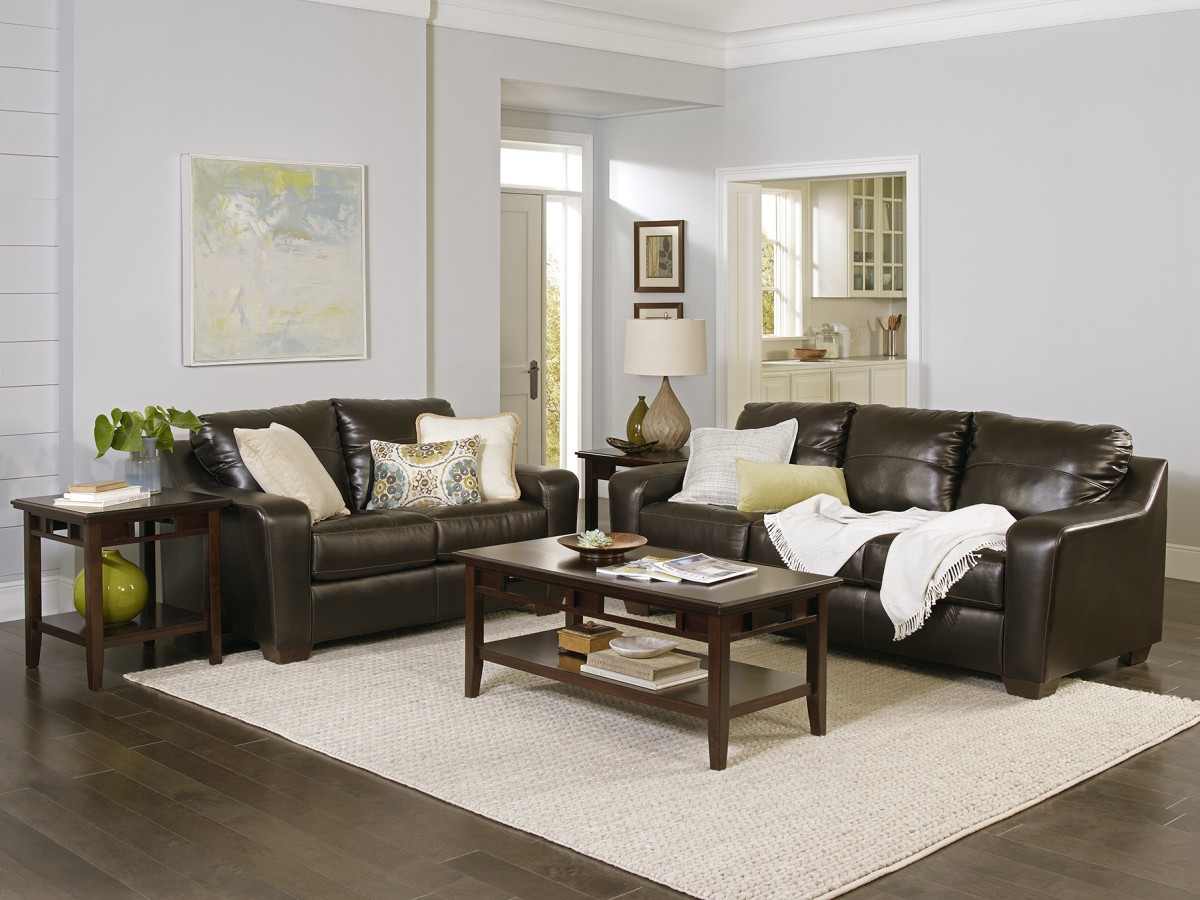
A rug may not be at the top of your shopping priority list, but it can be one of the most important accessories in a room. And there is no better way to cozy up a space than with a plush rug.
If you’re hosting guests for the upcoming holidays, a rug is a nice way to spruce up your living space or guest room. But choosing the right one can be tricky. That’s why we’ve put together this list of do’s and don’ts when selecting a rug for your home.
DO
Shop for a rug first or last.
If you choose a rug first, you can plan your sofa, chairs, and table to fit around it. If you choose it last — after you have all of your furniture — you’ll be able to select a rug that’s the ideal size and color to pull everything together.
Consider the room you’re accessorizing.
If your floor is wood, you want to make sure your rug works with the color of the boards. Warm colors (red, orange) pair better with darker wood floors, and cool tones (blue, green) work with lighter woods. (These rules also work for tile floors.)
For a living room, opt for colors and patterns to complement your couch, side chairs, or throw pillows. (Bonus: A darker pattern can help hide spills and spots in this high-traffic area.) A bedroom needs a rug in a more restful or neutral shade.
Pro tip: Don’t choose white or light gray for a heavily trafficked room or the dining room. You’ll never keep it clean!
Think about the material.
Wool — the most common rug material — is known to repel stains and water and add insulation. More affordable cotton is easier to clean, but it may wear over time. It’s a good choice for more casual spaces like kitchens or kids’ rooms.
Synthetic rugs — usually made of polypropylene, nylon, or polyester — are also extremely popular. They are less expensive than their wool counterparts and are durable and stain-resistant.
Sisal and jute rugs are made of natural fibers — sisal comes from agave plants and jute from an actual jute plant — and are tough enough to withstand high-traffic areas. These rugs also provide a great neutral base for layering, and can be topped with a smaller patterned style. Animal hides are exotic in a bedroom or office.
Add interest to every room.
Long, skinny rugs are great in hallways, the bathroom, or the kitchen. Just remember to leave one or two feet of bare floor on each side. A soft-toned rug can make for a dreamy bedroom, even if it is layered on carpet.
DON’T
Feel like you have to spend a lot.
Once you know the dimensions of the rooms you want a rug for, try visiting thrift stores and flea markets to find styles you love to brighten your space. Or shop sites like Craigslist and Facebook garage sales.
Skimp on size.
A too-small rug will throw off the proportions of your room. At the very least, the front legs of your sofa, side chairs, and end tables should fit on the rug.
Here’s a handy key: If your room is 6-by-9 feet or 7-by-10 feet, a 5-by-8-foot rug is ideal. If the room measures 9-by-11 feet to 10-by-12 feet, go for an 8-by-10-foot style. In a bedroom, the rug should ideally extend from the bed two feet on each side.
Be afraid to layer.
Mixing and matching rugs can help fill a large area (HGTV has some inspiration), and they add a bohemian look that’s super popular on Pinterest right now. Just make sure the patterns and/or colors go well together.
Forget the rug pad.
The final finishing touch, a rug pad helps your rug stay in place so that it — and you — won’t slip.
